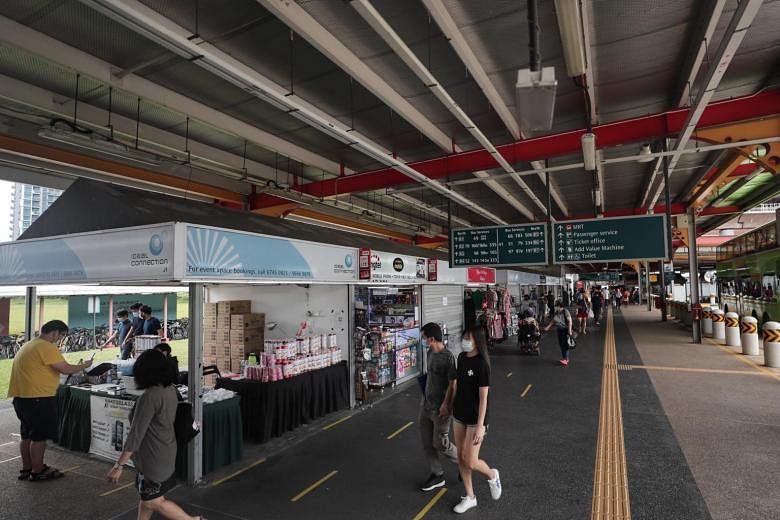SINGAPORE - Questions over the eligibility thresholds for companies to benefit from measures introduced under amendments to the Covid-19 (Temporary Measures) Act and the Insolvency, Restructuring and Dissolution Act were among points raised by MPs on Tuesday (Nov 3).
During the debate on both Bills, MPs lauded the efforts put in place to help businesses weather the challenges of the coronavirus pandemic. Here are some of the key questions.
1. Qualifying thresholds
Several MPs, including Mr Murali Pillai (Bukit Batok) and Mr Derrick Goh (Nee Soon GRC), suggested that the thresholds should not be set too high, so that more entities could benefit.
Mr Goh said that the use of revenue drop to identify businesses affected by the Covid-19 crisis should not be too conservative for the amendments under the Covid-19 (Temporary Measures) Act to be helpful, as it would only cover companies that are already facing imminent solvency issues otherwise.
Responding, Second Minister for Law Edwin Tong reiterated that the Government's position in designing the two Bills is to help the economy for the long-term.
"We want to achieve a fair balance between the business entities and provide a framework for them to relook at their operating assumptions, look at it in the context of what they know today about the economy, about the restrictions to businesses, and then make a considered decision as to what the renegotiated terms should look like," he said, adding that the qualifying thresholds would be set in this context.
2. Assistance for firms
Ms Hany Soh (Marsiling-Yew Tee GRC) asked about the assistance to firms to help them understand their options and advise them on whether and how to utilise the right framework or programme for their needs.
"While the Re-Align Framework and Simplified Insolvency Programme are beneficial, we need to raise awareness to ensure that those eligible will know how to apply and are encouraged to do so," she said.
The Government has reached out to various industry groups, such as chambers, trade organisations and associations in touch with micro and small businesses, to help disseminate information packages, Mr Tong said.
The Ministry of Law has also been exploring options with the Law Society to set up outreach for more pro bono lawyers to assist parties on the ground, as well as law schools which run pro bono centres, he added.
3. Differentiated criteria
Workers' Party MP Jamus Lim (Sengkang GRC) and Mr Edward Chia (Holland-Bukit Timah GRC) suggested that more differentiated criteria could be instituted for firms to qualify for simplified insolvency processes.
"It may be valuable to consider the possibility of a tiered set of bankruptcy rules that apply to micro, small, medium and large enterprises, consistent with the likely complexity of the operations," Associate Professor Lim said.
Meanwhile, Mr Chia asked if other qualifying criteria could be provided for different industries to recognise the nuances between different sectors.
Replying, Mr Tong said that the qualifying criteria would not be further differentiated, as those set out already target the relevant cases and company sizes, and the objective is to simplify overall processes rather than over-complicate the matter.
4. Protecting other stakeholders
Labour MP Patrick Tay (Pioneer) raised concerns over how other stakeholders, such as employees and vendors, would be covered in situations where businesses undergo simplified debt restructuring or liquidation.
"In any event, there is little or no recourse for both workers and unions as a moratorium of sorts prohibits the enforcement of rights under a collective agreement or any other due process," he said.
In response, Mr Tong explained that the provisions under the Insolvency, Restructuring and Dissolution Act are not intended to affect the existing principles that apply to schemes of arrangement.
Referring to a situation where a company is undergoing liquidation, he noted that priority in paying off debts are given in a descending order, with the expenses of liquidation and the applicant for winding up the company coming foremost.
These rank in priority to the employees' claims, which are paid thereafter, Mr Tong said.


